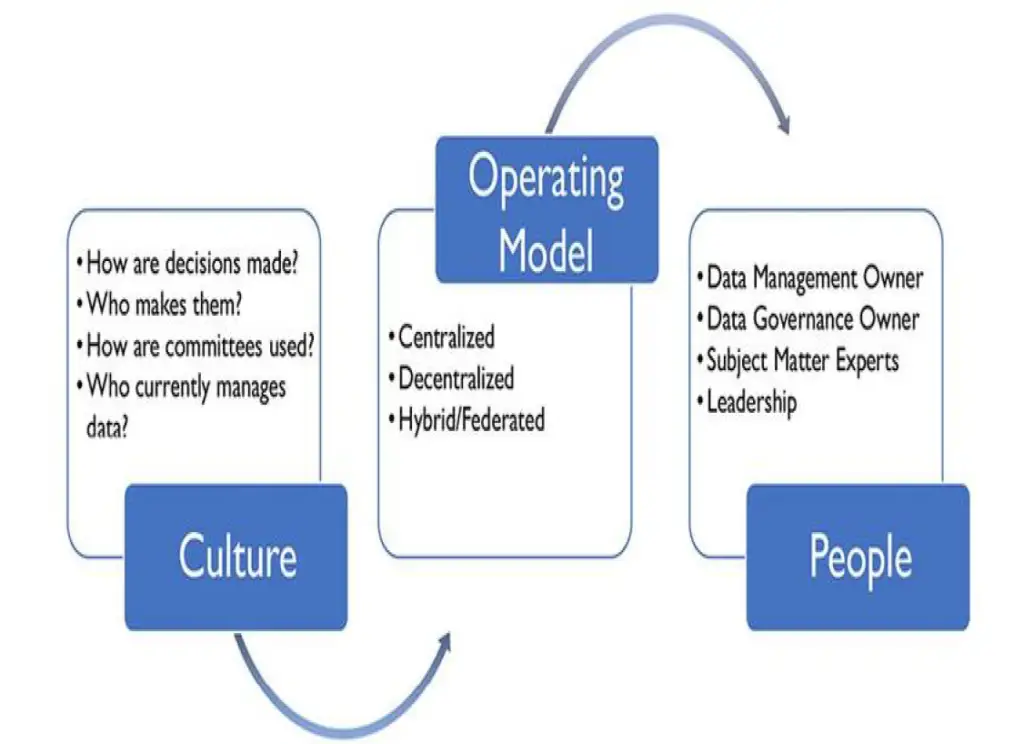Awareness, Ownership, and Accountability in Data Management Initiatives
Awareness, ownership, and accountability are the keys to activating and engaging people in Data Management initiatives, policies, and processes.
Understanding the Current Organizational State
Before defining any new organization or attempting to improve an existing one, it is important to understand the current state of component pieces related to culture, the existing operating model, and people.
The role of data in the organization
What key processes are data-driven? How are data requirements defined and understood? How well-recognized is the role that data plays in organizational strategy?
Cultural norms about data
Are there potential cultural obstacles to implementing or improving management and governance structures?
Data Management and Data Governance Practices
Data Management and Data Governance practices: How and by whom is data-related work executed? How and by whom are decisions about data made?
Organization and Execution of Work
How work is organized and executed: For example, what is the relation between project-focused and operational execution? What committee structures are in place that can support the data management effort?
Reporting Relationships and Organizational Structure
How are reporting relationships organized? For example, is the organization centralized or decentralized, hierarchical or flat?
Skill Levels and Data Knowledge Across Stakeholders
- Skill levels: What is the level of data knowledge and data management knowledge of SMEs and other stakeholders, from line staff to executives?

For Your Further Reading:

